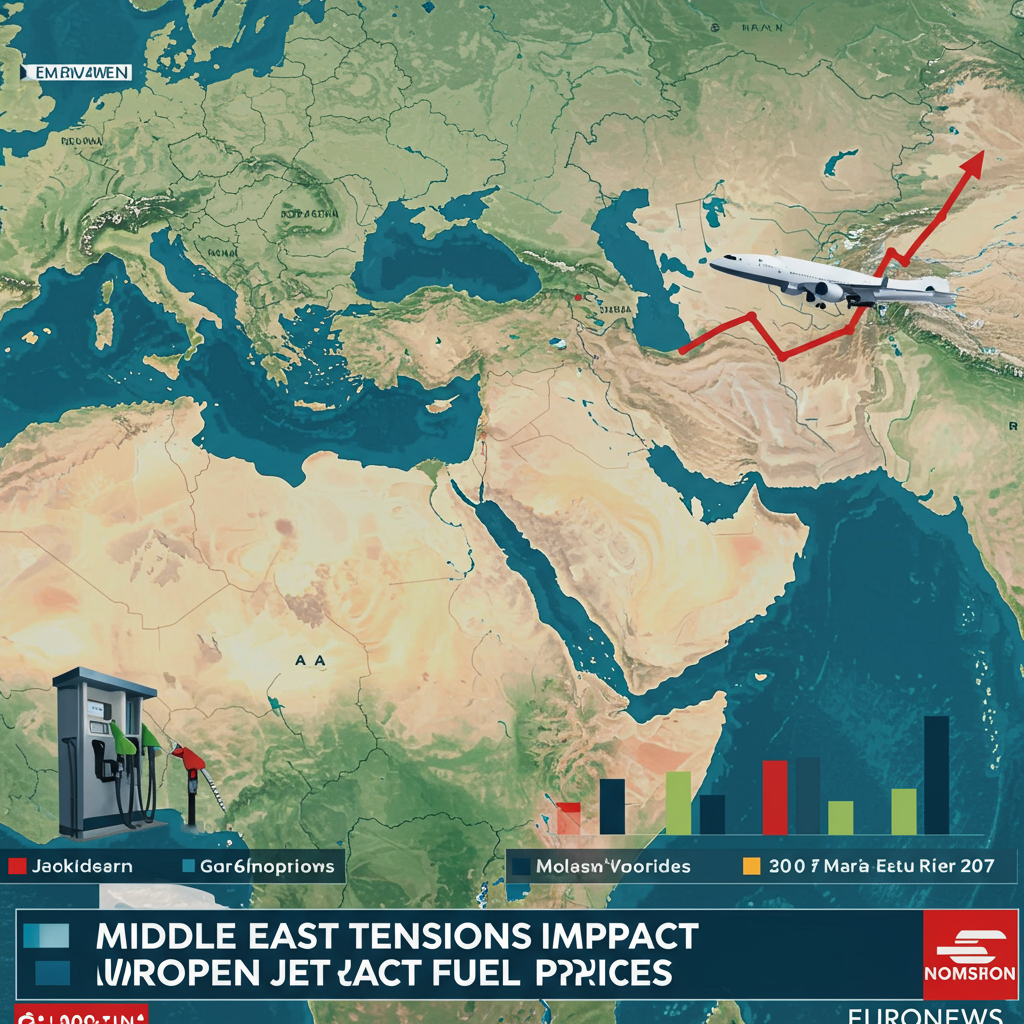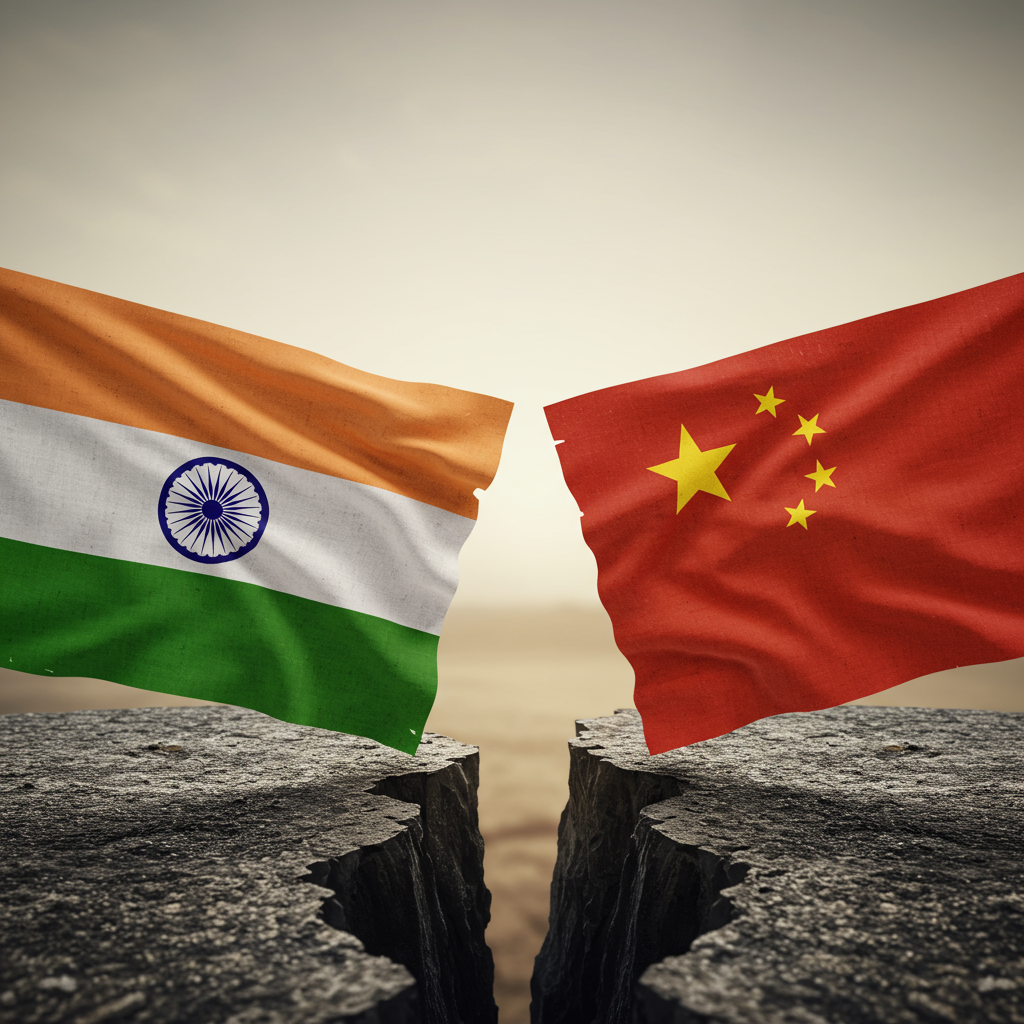Escalating tensions in the Middle East are sending ripples through global energy markets, most notably causing a significant surge in jet fuel prices across Europe. This rapid increase is directly linked to growing concerns that the regional conflict, particularly between Israel and Iran and their proxies, could severely disrupt vital energy supply chains.
The current volatility builds upon existing market anxieties. Even before the latest escalation saw direct attacks on energy infrastructure, oil prices had already climbed by around 9 percent. Analysts widely anticipate further sharp increases as markets react to the expanded scope of the conflict.
Targeting Critical Energy Infrastructure
A major factor driving the price jump is the targeting of key energy facilities. Recent reports indicate unprecedented Israeli strikes on several of Iran’s core oil and gas installations. These include:
Shahran Fuel and Gas Depot: A massive storage and distribution hub near Tehran, crucial for supplying fuel, including aviation fuel, to the capital’s northern areas.
Tehran Oil Refinery (Shahr Rey): One of Iran’s largest refineries. While initial reports varied, any disruption to such a major processing facility would strain fuel logistics in Iran’s most populated region.
South Pars Gas Field: The world’s largest gas field, located offshore in the Gulf. Strikes here have reportedly caused significant damage and halted production at processing and offshore platforms critical to Iran’s gas supply.
Fajr Jam Gas Plant: A major processing facility for gas from South Pars. Disruptions threaten domestic electricity and fuel supplies, potentially causing widespread blackouts.
The strategic importance of these sites lies in their critical role for Iran’s domestic energy needs. However, targeting them signals a new phase in the conflict, raising the specter of wider regional energy instability impacting global markets.
Wider Threats to Global Energy Supply
Beyond direct attacks on facilities, the conflict poses several other threats to global energy markets:
Strait of Hormuz: Iran has reportedly considered closing this vital choke point, through which nearly 20 percent of global oil consumption flows. Such a move would cause oil prices to soar dramatically.
Houthi Attacks: Iranian-backed Houthi forces in Yemen could intensify attacks on oil shipping in the Red Sea or even target Saudi Arabian oil facilities, mirroring past attacks that temporarily halved Saudi production.
- Hezbollah’s Role: A full mobilization by Lebanon’s Hezbollah, with its significant arsenal, could escalate the conflict further, potentially impacting regional infrastructure and supply lines.
- www.aljazeera.com
- oilprice.com
The Spectre of an Oil Embargo
Perhaps the most concerning threat for global oil prices is the potential for Islamic members of OPEC to impose an oil embargo against Israel and its allies. This would echo the 1973/74 Yom Kippur War, when a similar embargo caused prices to skyrocket by roughly 267%.
Islamic OPEC members collectively produce nearly 30% of current global oil. An embargo, potentially combined with other disruptions, could lead to a supply loss significantly larger than the 1973 crisis. Experts estimate that a “large disruption” (6-8 million barrels per day loss), comparable to 1973, could push Brent crude prices up by 56-75%, potentially reaching $120-$135 per barrel or higher from previous levels. Such price increases would dramatically impact the cost of petroleum products like jet fuel globally.
Geopolitical Counter-Pressures
Despite the significant risks, there are factors potentially working against uncontrolled escalation and massive price hikes. Neither of the major global powers involved – the United States (supporting Israel) nor China (with significant ties to Iran) – desires significantly higher oil prices.
The U.S. seeks to keep prices below a certain threshold to avoid increasing recession risks before elections. China, as the world’s largest crude importer, relies on stable, lower prices for its economic recovery. This shared interest in price stability by key global players acts as a powerful motivation for de-escalation behind the scenes.
Nonetheless, the current situation remains precarious. The direct targeting of energy assets, coupled with the credible threats to shipping lanes and the potential for a coordinated supply cut, ensures that jet fuel prices in Europe and global energy markets will remain highly sensitive to developments in the Middle East conflict.



